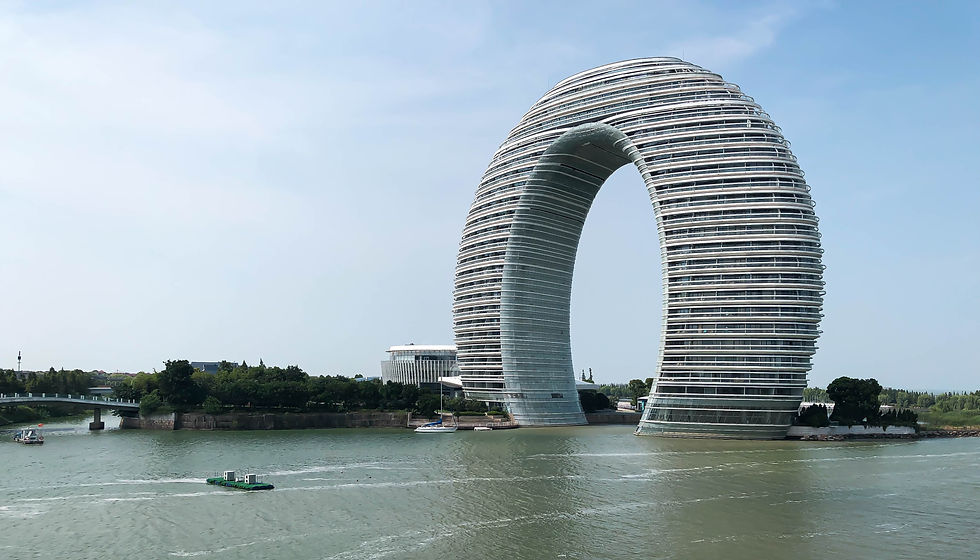The Latest News in Smart Technology and Its Implications for Hotels and Architects
- Ethnic Technologies
- Sep 5, 2024
- 3 min read
Smart technology continues to evolve at a rapid pace, bringing innovative solutions that transform industries and redefine the way we live and work. For hotels and architects, staying abreast of the latest developments in smart technology is crucial to remain competitive and meet the ever-growing expectations of clients and guests. In this article, we delve into the latest news in smart technology and explore its profound implications for the hospitality industry and architectural design.

Smart Technology Trends Revolutionizing Hotels
AI-Powered Guest Experiences
Latest Development:
Artificial intelligence (AI) is being increasingly integrated into hotel operations to enhance guest experiences. AI-powered chatbots and virtual assistants are now capable of handling a wide range of guest inquiries, from booking reservations to providing personalized recommendations.
Implications:
- Enhanced Guest Services: AI allows for immediate, 24/7 customer service, ensuring guests receive timely assistance and personalized attention.
- Operational Efficiency: AI systems streamline operations by automating routine tasks, freeing up staff to focus on more complex and high-value activities.
- Data-Driven Personalization: AI analyzes guest data to tailor services and recommendations, improving guest satisfaction and loyalty.
Internet of Things (IoT) for Smart Rooms
Latest Development:
The Internet of Things (IoT) continues to advance, with smart rooms becoming a standard in modern hotels. These rooms are equipped with interconnected devices that can be controlled through a single interface, such as a smartphone app or voice command.
Implications:
- Personalized Comfort: Guests can customize their room settings, including lighting, temperature, and entertainment options, to their preferences.
- Energy Efficiency: IoT devices monitor and optimize energy usage, reducing operational costs and environmental impact.
- Convenience and Connectivity: Smart rooms offer seamless connectivity, allowing guests to integrate their personal devices with the hotel's system for a more immersive experience.
Contactless Technology
Latest Development:
In the wake of the COVID-19 pandemic, contactless technology has gained significant traction. Hotels are adopting contactless check-in and check-out processes, mobile room keys, and touchless payment systems to enhance safety and convenience.
Implications:
- Improved Safety: Contactless technology minimizes physical interactions, reducing the risk of virus transmission and ensuring guest safety.
- Streamlined Processes: Guests can enjoy a faster and more efficient check-in/check-out experience, enhancing overall satisfaction.
- Modern Appeal: Adopting the latest technology demonstrates a commitment to innovation, attracting tech-savvy travelers.
Smart Technology Innovations Shaping Architectural Design
Building Information Modeling (BIM)
Latest Development:
Building Information Modeling (BIM) is revolutionizing architectural design and construction. BIM software allows architects to create detailed 3D models of buildings, incorporating data on materials, systems, and performance.
Implications:
- Precision and Collaboration: BIM enhances accuracy in design and construction, reducing errors and facilitating collaboration among stakeholders.
- Sustainable Design: Architects can use BIM to analyze and optimize building performance, promoting energy efficiency and sustainability.
- Lifecycle Management: BIM models serve as valuable assets throughout a building's lifecycle, aiding in maintenance, renovations, and future upgrades.
Smart Materials and Adaptive Architecture
Latest Development:
Innovations in smart materials are paving the way for adaptive architecture. These materials can respond to environmental changes, such as temperature and humidity, to enhance building performance and occupant comfort.
Implications:
- Dynamic Building Systems: Smart materials enable buildings to adapt to changing conditions, improving energy efficiency and indoor comfort.
- Sustainable Construction: The use of smart materials reduces the need for mechanical systems, lowering energy consumption and environmental impact.
- Aesthetic Flexibility: Architects can design structures with dynamic façades and interiors, creating visually striking and functional spaces.
Augmented Reality (AR) and Virtual Reality (VR)
Latest Development:
Augmented Reality (AR) and Virtual Reality (VR) are becoming indispensable tools in architectural design and client presentations. These technologies allow architects to create immersive, interactive experiences that showcase their designs in real time.
Implications:
- Enhanced Visualization: AR and VR enable clients to explore designs in a virtual environment, providing a realistic sense of scale, space, and aesthetics.
- Improved Decision-Making: Interactive simulations help stakeholders make informed decisions, reducing the risk of costly design changes during construction.
- Innovative Presentations: Architects can differentiate themselves by offering cutting-edge presentations that engage and impress clients.
The rapid advancements in smart technology are reshaping the hospitality and architectural industries. For hotels, embracing AI, IoT, and contactless solutions can significantly enhance guest experiences and operational efficiency. Meanwhile, architects can leverage BIM, smart materials, and AR/VR to create innovative, sustainable, and visually captivating designs.
At Ethnic Technologies we are dedicated to helping hotels and architects harness the power of smart technology to stay ahead of the curve. Contact us today to learn how we can assist you in integrating these cutting-edge solutions into your projects and operations for a smarter, more efficient future.




Comments